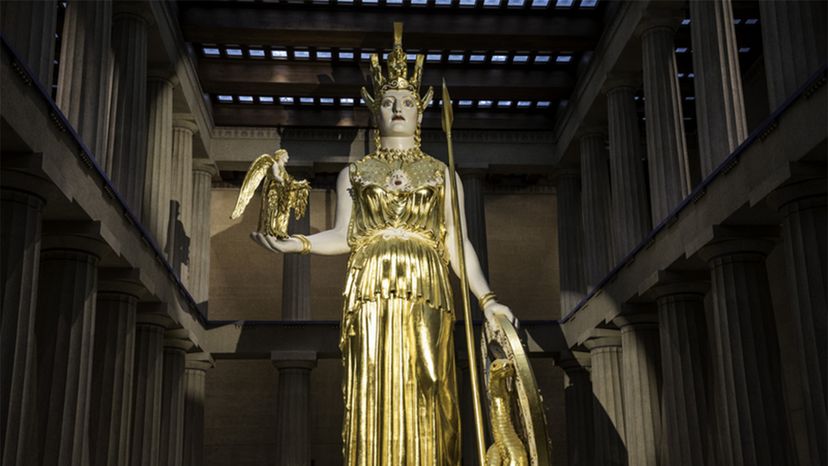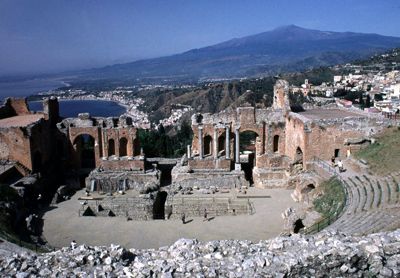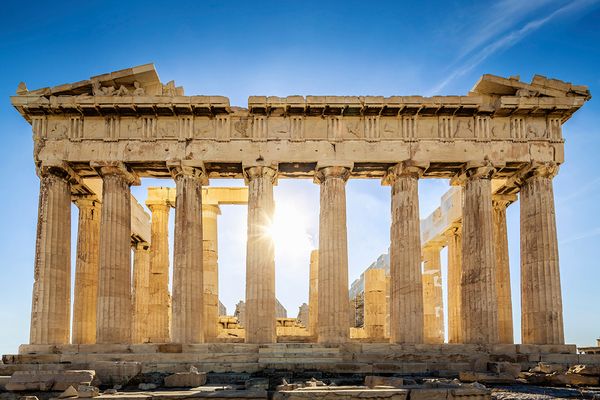
Greek gods are, by nature, pretty multifaceted. Take Aphrodite, for example. She's known for her otherworldly beauty and love of love, but she's also remembered as the deity who fed a guy's horses magical water that caused them to crush and eat his body after he denied her advances. So, yeah, you could say these mythological characters are kind of complex.
Case in point: Athena. Regarded as the goddess of wisdom and war, the patron of Athens is also considered the goddess of all things crafty. She's the one you can thank for the gifts of cooking and sewing, but she's also the skilled and courageous immortal who lent a hand to guys like Hercules, Perseus and Odysseus, so they could go down in history as heroes. Here are seven more facts that make Athena a legend with many layers:
Advertisement


